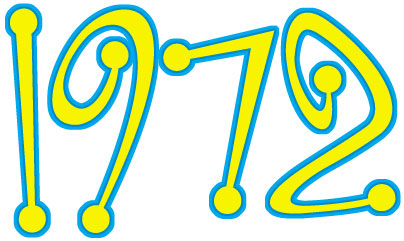

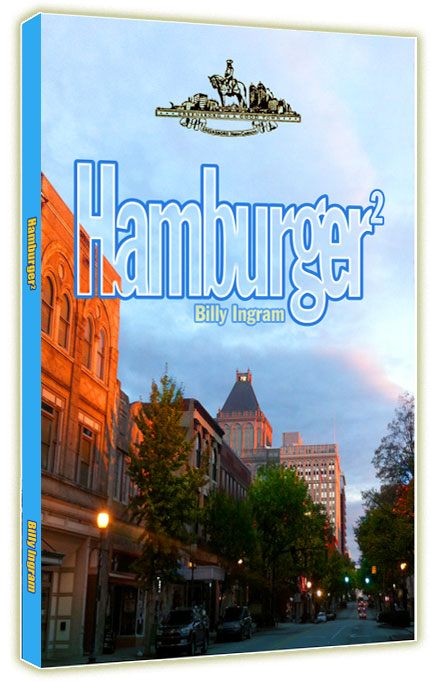
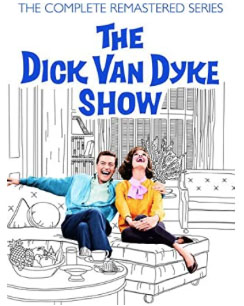
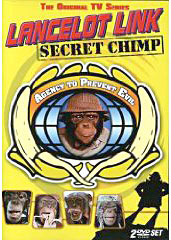
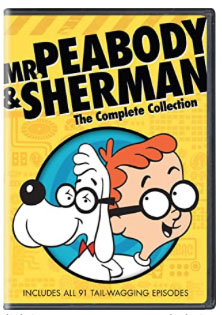
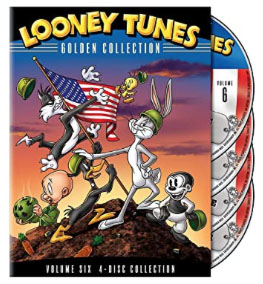
 |
 |
 |
 |
 |
 |
 |
| |
|
|||||
|
Variety programs and westerns had traditionally been TV's most popular fare - they were now largely a turn off. Established stars and shows with decades long runs on TV had fallen by the wayside - Ed Sullivan, Jackie Gleason, Red Skelton, Andy Griffith, My Three Sons, Bonanza and Lucy were gone or on the way out. This led to a scattershot approach to programming and a higher percentage of failures each fall season to come. Local stations around the country began adopting a 'happy news' format with anchors and reporters chatting and yukking it up between stories, a style that still dominates the medium today. Venture back some 40 years to see and hear what the television landscape offered...
|
1.
All in the Family
|
Amazon Prime - unlimited streaming PR4 & PR5 Pages for Advertising
|
||||||||||
| UNEXPECTED
How can a program that lands in the top five right out of the gate get cancelled? Despite high ratings, CBS canned this show because they felt too many viewers were defecting after the massive lead in from All In The Family. M*A*S*H* moved into that timeslot in the fall of 1973 and bolted into the top five as well but held on to 10% more viewers than Bridget Loves Bernie. Bridget Loves Bernie on DVD Here's a fall promo from You Tube:
In this series, Sandy Stockton was a UCLA student / commercial actress who worked for a talent agent; when she got home there were some typically kooky neighbors to contend with. The show was gone by January but inspired a punk band a few years later called Sandy Duncan's Eye.
This ambitious hour proved to be an expensive flop despite winning multiple Emmy awards and heaps of critical acclaim. Produced by Nick Vanoff (Hollywood Palace).
Why was it picked to hit? Paul Lynde was voted TV's most popular comic in 1972 and the show was produced by the same team that created Bewitched (1964-1972). That wasn't enough to overcome the hackneyed plots and the program's All in the Family derivative nature.
Banacek Cool
Million Madigan
Temperatures
Rising Can two failures add up to one success? This show limped into a second season as The New Temperatures Rising; most of the cast members (except Cleavon Little) were dropped while Paul Lynde was added as a prickly hospital administrator.
Anna
and the King
Banyon |
SUNDAY
This show moved from Saturday to Sunday mornings in the fall of 1972, where programs were routinely bumped by local affiliates for church broadcasts. The first Sunday show featured a look back at past programs with segments on Charlie Chaplin's Gold Rush, a cartoon about insensitivity, Barbara Minkus as Gittle the Bumbling Witch singing "These Wonderful Things" and a Miss Peach cartoon. Also seen: science experiments for younger kids. Produced, written and created by animator extraordinaire Chuck Jones - two kids would visit the shop to discover something new each week, with the help of puppets like Baron Balthazar and S.I. Trivia (a worm in the dictionary). In addition to Miss Peach, there were also Dennis the Menace and B.C. cartoon shorts. Networks were under attack from parental groups for not providing enough educational shows for children, this production was created with that in mind, combining live action, animation, puppets and music - Mr. Wizard meets Sesame Street. One memorable animated segment was the first Multiplication Rock ("Three Is The Magic Number") which became a regular Saturday morning feature in 1972.
Make
A Wish
Make A Wish (1971-76) was an ABC Sunday morning series starring Tom Chapin, produced, written and directed by Lester Cooper. Educational in nature, this show is fondly remembered for the original folksy tunes, written and sung by Tom Chapin (singer Harry Chapin's bother). Different subjects were explored each week. 'Make A Wish' was one of those rare educational shows that kids actually liked and parent groups lauded with awards. Segments this season included: a generator that produces alpha waves, a visit to the Philly Mint, California redwoods, Santa Barbara's off shore oil rigs and trap door spiders from Mississippi. Insight This long-running Sunday dramatic anthology presented short stories that usually involved a spiritual awakening. The biggest film and TV stars appeared over the years. This season saw Brian Keith as a craftsman who could lose his job to automation; Bill Mumy in the story of a teen girl who questions her values; Jack Albertson as a comedian searching for humanity in a computerized world; Ed Asner, Meredith McRae and Beau Bridges in the tale of draftee undergoing a crisis of conscience. Father Ellwood Kieser hosted the series. This was one of many religious anthology shows on Sundays that included Light Unto My Path, This Is The Life and Look Up and Live.
Captain Noah From You Tube - Captain Noah:
"Remember what Capt. Noah says... 'Never roam alone.' That was just one of many. I remember drawing tons of pictures thinking they would end up 'posted high in the TV sky' Boy... what silly memories." - Emily M THE
7:30 TIMESLOT: Ozzie's
Girls This was the first network sitcom to be revived in syndication (a major trend during the 1980s), and the first program to show blacks and whites living under the same roof (one of the college boarders was African-American). Lasted only one season.
Former network primetime shows that were flourishing in syndication in 1972-73: Lawrence Welk Show, I've Got a Secret, Hee Haw, Let's Make a Deal, Lassie and This is Your Life. |
|||||||||||
|
Marcus
Welby, M.D.
The
Partridge Family
Thanks to innovative programming and superlative promotional campaigns (like those seen here), ABC would soon come to dominate the ratings with 15 of the top 20 shows in 1976. |
||||||||||||
|
NEW
ON
Fat Albert was produced by Filmation and Cosby himself, who had recently earned his doctorate in education (specifically, children's educational TV). Bill Cosby also provided many of the character voices.
TV teen ideal Gidget returned in cartoon form as part of the Saturday Superstar Movie, a one-hour TV movie-like concept for kids.
ALSO POPULAR ON SATURDAY MORNINGS: The Monkees (reruns), Archie's TV Funnies, Sabrina the Teenage Witch, The Amazing Chan and the Chan Clan, Sealab 2020, The Osmonds and The Jackson 5ive.
|
1972 COMMERCIALS: Those big-ass, ugly, gas guzzling 1972 Lincoln Mercury cars. The equally bulky but more streamlined 1972 Pontiac Grand Am. Johnny Cash was selling, of all things, Amaco gasoline in 1972. A very successful campaign - "No cat ever walked away from Friskies Buffet." |
|||||||||||
| PROGRAM
PROFILE: |
||||||||||||
|
SPORTS: The National Hockey League jumped from CBS to NBC in 1972 - so CBS picked up the fledgling World Hockey Association for five years. Wide World of Sports begins another season while celebrities compete on The American Sportsman as ABC leads the way in innovative sports programming. Stars appearing on American Sportsman this year included Tom Smothers. |
||||||||||||
| NIGHTIME
UFO Wacky
World of Jonathan Winters Adventurer
|
SATURDAY
MORNING Sunshine Cookies with the 'Chip A Roo Kid.' The Heart Association used the Tin Man from The Wizard of Oz to make their pitch.
|
|||||||||||